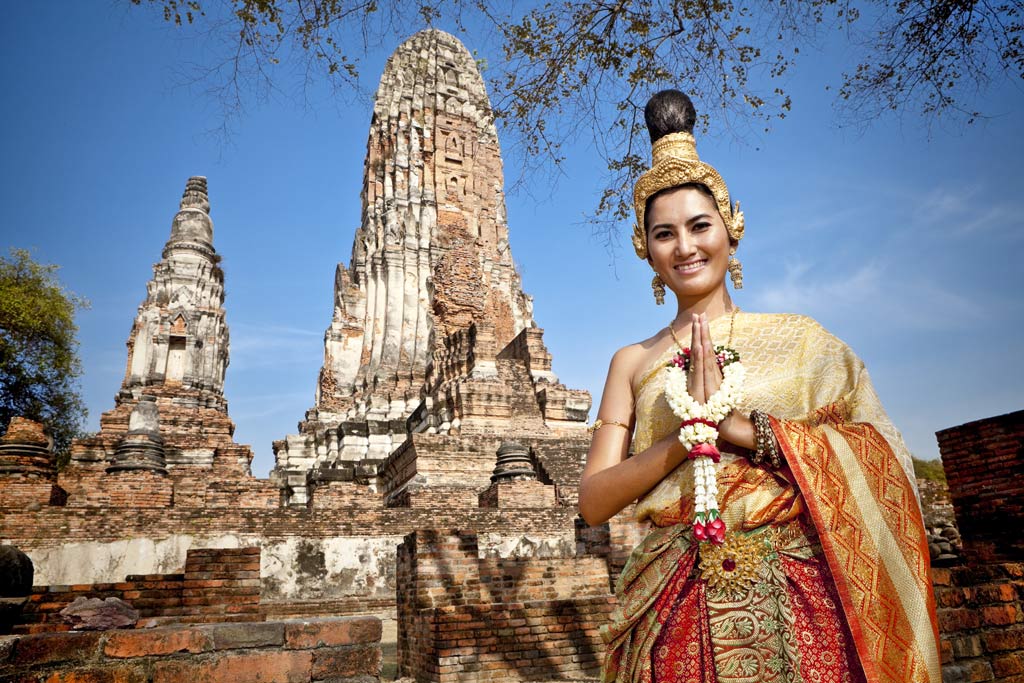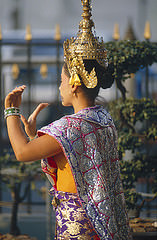
Culture Shock in Thailand
Meeting and greeting in Thailand
The Thais greet each other with a wai (pronounced “why”). A person places the palm of their hands together at chest level, holding them close to their body, with a slight bow. The higher the hands are placed, the more respect is shown, but people should never have the tips of their fingers higher than their nose. With this gesture, men say sawadee-krap, and women say sawadee-ka, which are used to say hello as well as goodbye.
It can cause embarrassment when offering a wai to someone of lower social standing, as this may lead them to lose face. Expats should therefore note that a wai is not used to greet children, servants, street vendors or labourers. It’s also not expected to return a wai to a child, waiter or someone of similar social standing – simply nod and smile in response.
Dress in Thailand
Language barrier in Thailand
Religion in Thailand
Women in Thailand
Cultural dos and don’ts in Thailand
- Do show great respect to the Thai royal family. They are highly revered by the local population.
- Do take the Thai national anthem very seriously. It is played several times a day – every day at 8am and 6pm when the flag is raised and lowered, and before movies in the cinema. When the anthem is being played, everyone must stop what they are doing and stand to attention out of respect.
- Don’t ever touch the head of a Thai person or pass any objects over someone’s head. The head is the highest part of the body and is considered sacred in Thailand. It needs to be treated with utmost respect.
- Do take off shoes when entering homes, temples or buildings that have an image of the Buddha inside. Some shops and offices also expect the same. So, before entering, check and see whether there is a space where people leave their shoes. If so, be sure to do the same.
- Don’t use feet for anything other than standing or walking. It is not acceptable for people to put feet up on a table or desk, and expats should avoid pointing their feet at people. It is also considered impolite to touch one’s feet in public.






